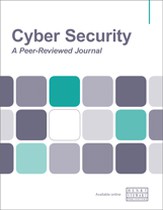Users are an intelligence source: Are you leveraging them in your detection strategy?
Abstract
Users are a built-in army of cyber defenders — if they are properly educated and conditioned to do the right things. From entry-level clerks to C-level executives, employees whose jobs have little to do with IT or security nonetheless perform critical tasks, making them a target for phishing attacks. While over the years organisations have done a commendable job of making users ‘aware’ of phishing, too often security professionals blame people for security failures. In this paper, learn the many reasons why the blame game is not fair. Discover how phishing has evolved faster than most organisations have adapted. Learn the most common forms of phishing today and why it is imperative to train employees not only to recognise phish but to report, quickly and easily. See the importance of reiteration and developing ‘muscle memory’ in training, along with the value of communicating back to employees who flag e-mails that seem suspicious. Frequency matters in phishing awareness — the stats bear this out. Organisations that run phishing simulations at least monthly are twice as resilient to phishing attacks than those simulating less often. Further, grasp the value of user-generated phishing intelligence to security operations. This paper examines how prompt notification by vigilant users enables security operations centre (SOC) teams to respond to phishing threats faster, reducing dwell time and protecting networks. Gain an understanding of how a human-centric phishing defence fills the gaps left by secure e-mail gateways, which cannot catch every phish and security orchestration, automation and response (SOAR) solutions as well. Threat actors are patient, methodical and smart. They use the most powerful machine ever — the human brain. Discover how honing users’ intuition flips the script, turning phishing targets into active defenders, whose success is easily measured, maintained and improved.
The full article is available to subscribers to the journal.
Author's Biography
Tonia Dudley joined Cofense in 2018 as Director, Security Solutions Advisor. In this role, she focuses on phishing defence advocacy while demonstrating how Cofense solutions help organisations across the globe minimise the impact of attacks while reducing the cost of operations. Tonia evangelises Cofense’s approach to phishing defence and incident response to new and existing customers, prospects and the information technology market through speaking engagements, publishing platforms and media opportunities. Tonia also advises Cofense product teams on specific customer and market-driven needs to help streamline product roadmaps and create Cofense’s international customer advisory board. Tonia represents Cofense on the Board of Directors for the National Cyber Security Alliance. With more than a decade of cyber security experience, Tonia has managed programmes in cyber security incident response, security awareness and IT compliance for large global organisations. Her diverse career includes 14 years in finance roles at an automotive retail chain, transitioning into IT roles over the next 12 years for a global manufacturing enterprise, where she developed an interest in cyber security. In 2011, she began building a security awareness programme to focus on behaviour instead of compliance. She then moved into the financial services industry for more than three years to build a security awareness programme. While working in the financial services industry, she participated in a working group to assist small companies with implementing a cyber security programme to protect their organisations. She has spoken at several cyber security conferences on building successful security awareness and phishing programmes. Her anti-phishing training programmes have received three awards.
